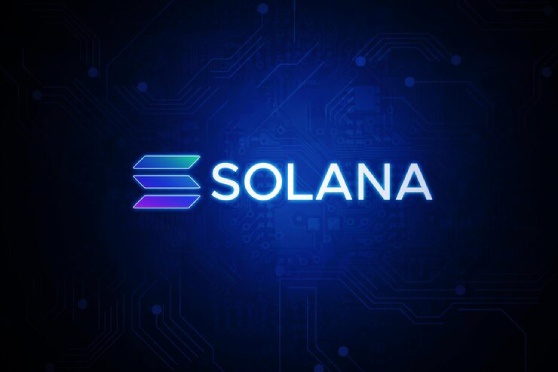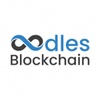In 2017, Solana came into existence with an aim to address scalability issues in the existing blockchain space. Solana blockchain development emerges as a better alternative that other blockchain. This high-performance, permissionless blockchain offers fast, cheap, and scalable transactions. These features are attracting several businesses to step into creating Solana smart contracts, also known as Solana programs.
Let’s understand the emerging potentials of Solana smart contract development for blockchain-based solutions.
Understanding Solana
In order to circumvent the scalability and congestion problems in the current blockchain market, Solana is a decentralised blockchain platform. The Solana blockchain's primary features centre on scalability enhancements, including faster confirmation times and higher transaction per second (TPS)
It is also an open-source platform made up of Qualcomm, Google, Netscape, and Intel technology. High performance criteria are balanced thanks to these technologies, says Solana.
Exploring Smart Contracts on Solana
Compared to conventional EVM-based blockchains, Solana offers a distinct smart contract approach.
Contract code/logic and state are combined into a single contract for on-chain deployment in EVM-based chains. In contrast, a Solana smart contract, sometimes known as a programme, is composed entirely of programme logic and is read-only or stateless.
External accounts can use smart contracts after their implementation. These accounts communicate with the programs to store data related to program interaction. In this way, the logical separation of state (accounts) and contract logic (programs) occurs.
It is a key distinction between Solana programs and smart contracts based on EVM. Accounts on Solana and Ethereum share differences. Solana accounts, unlike Ethereum accounts, which are pointers to people’s wallets, can store data (including wallet information).
To improve DApps' engagement with Solana, Solana also includes a CLI and JSON RPC API. Furthermore, decentralised apps can communicate with the blockchain and Solana programmes by utilising the current SDKs.
Solana offers CLI and JSON RPC APIs to communicate with decentralized applications (dApps). They can also take advantage of an existing SDK, which enables clients to communicate with Solana and its programs.
Pros of Developing Smart Contracts on Solana
Here are some of the benefits of smart contract development on Solana.
- Better Returns per Transaction: A platform will not face gas pricing or a limit on the Solana blockchain. As a result, the platform owner should expect a better return on each transaction.
- Customization: There is a provision for customization in Solana smart contract solutions by a smart contract owner for specific requirements.
- High Security: The Solana network ensures high security for smart contract development.
- Scalable DeFi Solutions: By leveraging Solana smart contracts, developers can create fast, scalable DeFi (decentralized finance) applications.
Advantages of Solana Smart Contracts
The following are the main advantage of choosing Solana smart contracts:
- Increased efficiency and speed: There is no requirement for real-time communication between Solana nodes. Solana needs 400 milliseconds to mine a block, but Ethereum needs 10–15 seconds.
- Less bandwidth: To speed up the transport, data is divided into smaller packets within the Solana network.
- Increased Scalability: Layer 2 solutions are not required for Solana developers to scale the network core.
- PoH: For each transaction, Solana generates a timestamp. It uses a cryptographically secure function to maintain a history record. With this, the common issue of timing agreement in distributed ecosystems is resolved.
- Requires Lower Prices: Since October 2021, the average transaction fee on the Solana blockchain has been around $0.00025. The gas costs on Ethereum can reach 10% of the transaction value. In addition, they vary greatly, ranging from a few cents for a regular transaction to $250 for an NFT buy.
Additional Advantages of Developing Solana Smart Contracts
Solana is a popular choice among smart contract developers for several reasons. In addition to the faster speed, this environment provides:
- Low Transaction Costs: Transaction costs are low because of PoH and Turbine. The network will now be under less strain due to smart contracts. It makes it great for those who create and trade NFTs.
- Customization: To suit their demands, developers can modify new smart contracts.
- Programming Languages: The programming language used by Solana is Rust. Writing code for smart contracts does not require creators to have any proprietary knowledge. Rust is suitable for new blockchains, games, and even marketplaces.
- Sustainable Growth: Unlike Bitcoin and Ethereum, Solana does not employ proof-of-work (PoW). Its agreement process utilizes 99.9% less energy.
Conclusion
More and more industries are adopting blockchain technology and the graph of decentralized apps continues to grow. In addition to high-speed, scalable, and low-cost transactions, Solana empowers the development of fast and scalable smart contracts. Actually, the most popular issue in the blockchain industry right now is developing smart contracts on Solana.
Searching for Solana development services? Connect with our Oodles blockchain experts to hire Solana developers.


No comments yet